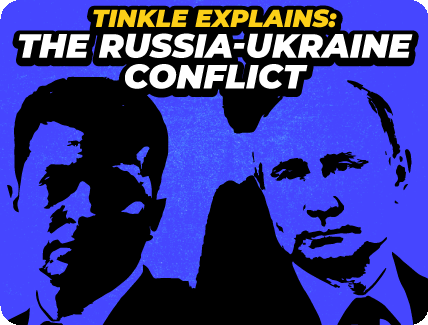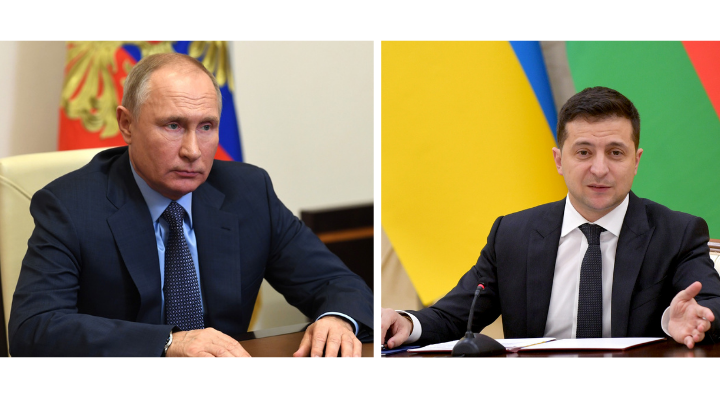

















If you’ve been following the news, you must have heard something about the ongoing conflict between Russia and Ukraine. There is a lot of information on the internet about this, each piece taking a different angle in their reportage.. Here’s a brief explanation of the situation.
Ukraine was a part of the U.S.S.R. (Union of Soviet Social Republics) and back then, it was called the Ukrainian Soviet Socialist Republic (S.S.R.). 1932 saw the death of millions of Ukrainians due to the Holodomor (in Ukrainian, holod means “hunger” and mor means “extermination”), a famine that was caused by Soviet leader Joseph Stalin’s agricultural policies and made exponentially worse through a targeted refusal to provide aid by the Soviet government. In some ways, this can be seen as one of the roots of the long-standing conflict between Russia and Ukraine.
Ukraine became fully independent when the U.S.S.R. was dissolved in 1991. Soon after, there came to be a form of association between the NATO (North Atlantic Treaty Organization) and Ukraine, although Ukraine is yet to be accepted as a member of NATO. On the other hand, there exist significant tensions between Russia and NATO, stemming from ideological differences which once gave rise to the Cold War (1947-1989).
What we also need to understand is that there has been conflict between Russia and Ukraine as recent as in 2014. At this time, Russia invaded Crimea (a peninsula near the northern coast of the Black Sea) soon after the Crimean parliament was occupied by masked men with guns, after a wave of demonstrations from pro-Russian protesters. At the time, Russian president Vladimir Putin signed a treaty that announced the integration of Crimea into the Russian Federation, after which Russian troops started to take control of the Crimean Peninsula. The Donetsk and Luhansk regions of Ukraine, due to escalating ethnic tensions caused by Putin’s declaration that Russian speakers and citizens in the Crimean region ought to be protected, broke away from Ukraine at this time. The situation has continued to be tense ever since then.
Another important factor to be considered is the significance of Ukraine in terms of trade. Ukrainian ports along the Black Sea coastline make it valuable for trade, which could also explain why Russia sees Ukraine as considerably strategic territory to absorb into its fold.
Between October 2021 and December 2021, Russia began moving military forces and equipment towards the border they shared with Ukraine, signaling a potential attack. In mid-December 2021, Russia also issued a set of demands, which included barring Ukraine from NATO membership as well as a reduction of troops in Eastern Europe. By mid-February, many countries including the USA responded to Russia’s threats by imposing financial measures against Russia, in an attempt to target its economy, which relies heavily on foreign trade due to its natural resources.


However, on the 24th of February, Putin announced the commencement of his military plan, soon after which Russia attacked Ukraine. Suspected Russian military activity in Donbas was therefore acknowledged. NATO has decided not to send any troops into Ukraine, but only to protect its own member countries. Ukrainian president Volodymyr Zelenskyy addressed the Russian people directly, calling upon them to speak up against war and injustice, but also promising to retaliate in case of an unprovoked attack. Initially, Putin had stated he was concerned by Ukraine’s increased closeness with NATO, but on the morning of the Russian attacks, there was no mention of this anywhere, Putin instead emphasising Russia and Ukraine’s cultural similarities and the subsequent need to unify the territories. As of now, martial law has been declared in Ukraine.
What does this mean for India? Traditionally, India has always shared close ties with Russia, with many defense equipment deals in place. However, India also does share strategic ties with many western nations as well, including the USA. On the other hand, Russia and China, while not always on the best of terms, have been getting too close for comfort, with China seemingly supporting Putin’s recognition of Ukraine’s breakaway regions of Donetsk and Luhansk as independent entities. Meanwhile, the Union Ministry of External Affairs has made an attempt to evacuate Indian nationals from Ukraine, but this attempt has failed due to the Kyiv (capital of Ukraine) airspace shutting down. The ministry is keeping the effort going, conducting a number of meetings to plan the same. Ukraine has sent an envoy, Igor Polikha, to India, in order to appeal to Prime Minister Narendra Modi to speak with Putin. What can be seen is a clear call to people of power all over the world to speak up against this attack. It has recently been reported, as per a readout from the Ministry of External Affairs, that PM Modi spoke to Putin over the phone and called for an end to this conflict.
As global citizens, perhaps we need to address some other important issues here. Is ideological warfare being carried out by using Ukraine as a mere object of power in this situation? Is the bid for power causing leaders and nations external to the crisis to leverage their own benefits in the conflict? Who ultimately suffers the costs of these manoeuvres for control?